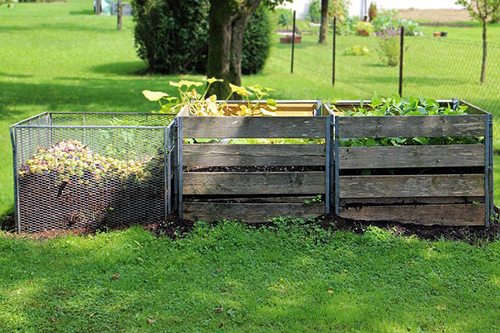Compost now for next season’s soil
Burpee Edible Gardening Team Members
Rich, healthy soil is one of the key elements of a successful garden, yet almost all soil needs to be amended. But don’t fret: Whether it’s too sandy and water drains right through it, or it’s clay and roots are stunted or drowned, it’s easy to add organics and make a fix. Adding homegrown compost to your garden let’s you “feed the soil, so that the soil feeds your plants.”
If you’re looking for ways to feed your garden with good, organic material, then you should consider composting. The composting process is not as complicated as it seems! Far from an exact science, it’s a well-rounded blend of dried leaves, aged manure, kitchen scraps and decomposing wood mulch.

To get started you generally need four things:
- Carbon (dead leaves and twigs – the Brown stuff)
- Nitrogen (vegetable peelings, grass clippings – the Green stuff)
- Moisture
- Air
The ratio we like to follow is 4 parts Brown to 1 part Green, and you should aim for 4 cubic ft. Here’s a few other guidelines for your new composting pile:
Turn this year’s plants into next year's soil. Don’t just throw away dead or dying plants after summer cleanup. Add them to your compost pile and let them contribute to becoming rich organic material that will get next year's crops off to a great start. NOTE: Don’t add any diseased plants to your compost, as pathogens can linger in the soil and possibly return the following year.
More benefits to yard maintenance. While you’re pruning shrubs, raking leaves and cutting the grass for the last time this fall, add those items to your compost. That’s good Brown Stuff that will break down and feed your garden. No weeds, though. We find those seeds are pretty hardy and can last the winter and pop back up in your beds. And aim for twigs no thicker than a pencil, too – the smaller the components, the quicker the breakdown process.
Start in the kitchen. Leftover salad hearts? Vegetable peelings? Anything that’s come from a plant is fair game for your compost bin. This includes coffee grounds, teabags and even paper towel rolls and newspapers. But to make sure your compost area isn’t visited by pests or critters, DON’T save fish bones, animal fat, dairy or meat products. This also eliminates any “smelliness” from the composting process. Using compost crocks and pails in your kitchen can help you recycle food scraps and other refuse easily, all while keeping your counters clear – and less smelly!
Can you tell we’re a big advocate for compost yet? Listen to a few more podcasts to get even more helpful tips for starting your garden off right next year with a little effort this fall. Any questions for our team? Contact us anytime!